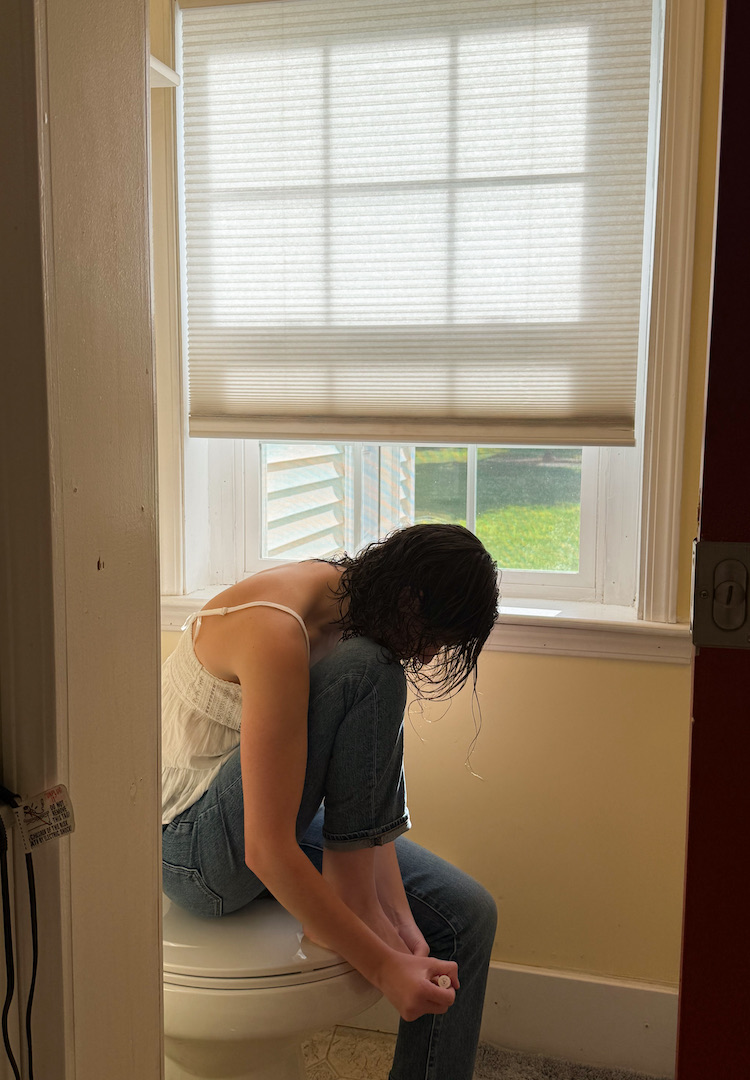Hoarding is on the rise, so why aren’t we talking about it?
PHOTOGRAPHY BY JESPER HEDE
WORDS BY MIA HARRISON
“Some people are very aware that they’ve developed a problem, but some people are in denial.”
By definition, hoarding is an accumulation of stuff. It sounds somewhat benign when you put it that way. But hoarding is on the rise, and many sufferers are struggling with hoarding at extreme levels. So why aren’t we talking about it?
Despite our increased awareness of many mental health disorders, we still fail to acknowledge the gravity of hoarding disorders and often lack the information to consider them sensitively.
Interested to hear how others navigate the world? Head to our Life section.
Why do so many of us associate hoarding with disability, poverty and drug abuse when it can affect people from all walks of life? And why do these preconceived ideas mean it’s something that many people don’t care about?
Recently, a documentary called The Cleaning Company aired at the Melbourne International Film Festival. At its centre was the late Sandra Pankhurst, the founder of STC Services, a trauma cleaning business that often works with extreme cases of hoarding and squalor.
After watching this documentary, I was blown away (seriously, check it out on SBS On Demand). In an attempt to further understand why these cases are so stigmatised, I contacted Dr Amanda Ferguson, a registered psychologist and the host of the Psych for Life with Dr Amanda Ferguson podcast.
In your job, do you often work with people who are struggling with hoarding?
Look, hoarding is mostly kept secret. Sure, it is a consequence of a mental health problem, but the hoarding itself is usually kept private due to the shame and embarrassment that surrounds it. In my work, we don’t usually see it until it’s turned into a legal matter and it’s out of control. It could be flagged because of an issue with the council, or maybe a neighbourhood or family dispute. By the time mental health services’ attention is called to it, it’s too far gone.
It’s usually posing [a] serious fire risk, or sometimes it’s a public health matter. It could be an issue with elderly or child protective services, animal welfare agencies might get involved, and police often get involved too. But yes, I do see glimpses of low-level hoarding in my [patient] rooms sometimes, before it gets worse. Hoarding is one symptom to a big mental health problem. When I see patients, they’re not really there to talk about their hoarding – they’ve got other issues that they want to talk about.
Can hoarding behaviours be unlearnt?
Unfortunately, it’s hard. People don’t really like [to] budge or change when it comes to their lifestyle habits. We also still don’t really know what causes it. The risk factors seem to continuously be personality, family history, trauma and stress. We don’t know how to prevent it, but early intervention is best. Even though it’s usually very difficult, and quite uncomfortable to intervene [with] someone who you think is hoarding. The sooner you can get them help, the easier it will be for everyone.
Can you explain the psychology behind how hoarding manifests? What circumstances could lead to this?
We are investigating the risk factors of personality, family history [and] stress. Mental health issues are just like physical health issues, they get worse without intervention. For example, the Melbourne lockdowns, oh my god, that was a huge stress for so many people. So if somebody was at risk of hoarding, without the stress and isolation of the lockdowns the hoarding may not have manifested.
It’s definitely triggered by high-stress life events. You can see it when you look at significant generational events too. Elderly people often hoard food as they lived through wars where their access to produce was limited.
Why do you think it’s so stigmatised and is it more common than people realise?
Mental health doesn’t discriminate between socio-economic groups. It doesn’t matter if you’re rich or poor, what education you have, etc. Hoarding is also on a spectrum just like any other mental illness. Hoarding could be low grade to extreme.
I think when people start to realise it’s not normal [is when] for example, they can’t cook anymore because they don’t have room on their stove, or they can’t walk into a room anymore, they start not having people around to visit and they become ashamed and isolated. Also, some people are very aware that they’ve developed a problem, but some people are in denial. They think ‘It’s just the way that I live, and I have to have these things because they’re important to me’.
[It’s] interesting [to] note too, 80 to 90 per cent of hoarders have excessive acquisition rather than just ‘a little too much’. It’s actually usually very extreme, that’s why you don’t see it often amongst the community because by that point it’s a very private matter. By the time it’s gotten to that point your lifestyle is compromised, your career is compromised [and] your relationships are compromised too. There is so much shame around someone by that point that they don’t feel like they can lead a normal life in society.
What’s usually done when treating a hoarding problem?
It really depends on the unique profile of the patient. If someone had bipolar for example, you wouldn’t use hypnosis there, the approach would be more CBT based. We have also used behavioural modification techniques in these situations; treatment plans to manage anxiety, obsessiveness, and compulsiveness (which is largely part of the disorder by the time it reaches a psychologist).
Hopefully, we can work to create a plan to dismantle the hoarding, and potentially get a support person involved who could help supervise and work with the person on site.
What do you want our readers to know?
Mental health issues, including hoarding, can hit any of us at any time. The world is an increasingly stressful place, and we are all vulnerable. This has nothing to do with your strength of character, mental illness doesn’t work that way… the strongest, most noble person can still develop a hoarding problem. It’s really all about early treatment and intervention.
Find someone you do trust, a GP or a psychologist. This is extremely private work that we do, and you can have guaranteed safety and confidentially with these professionals. It is not a judgemental environment.
If you’d like to listen to Dr Ferguson’s podcast Psych for Life with Dr Amanda Ferguson, head here. If you or someone you know is struggling with mental health, 24/7 help is available. You can contact Lifeline at 13 11 14 or Beyond Blue at 1300 22 46 36.













